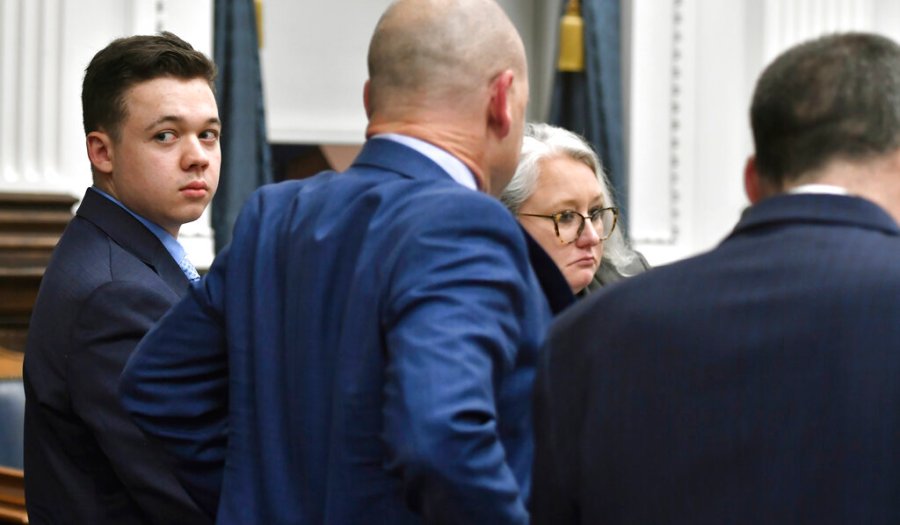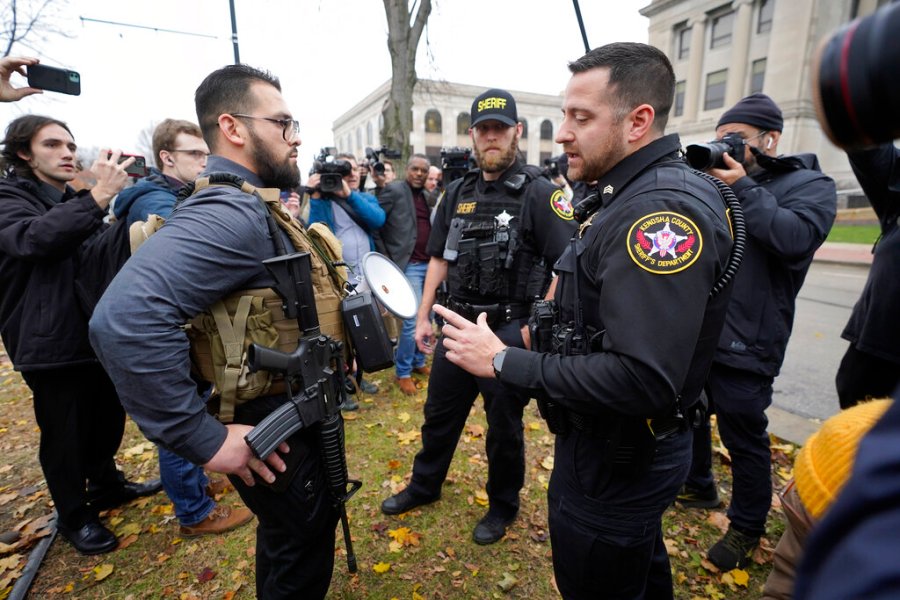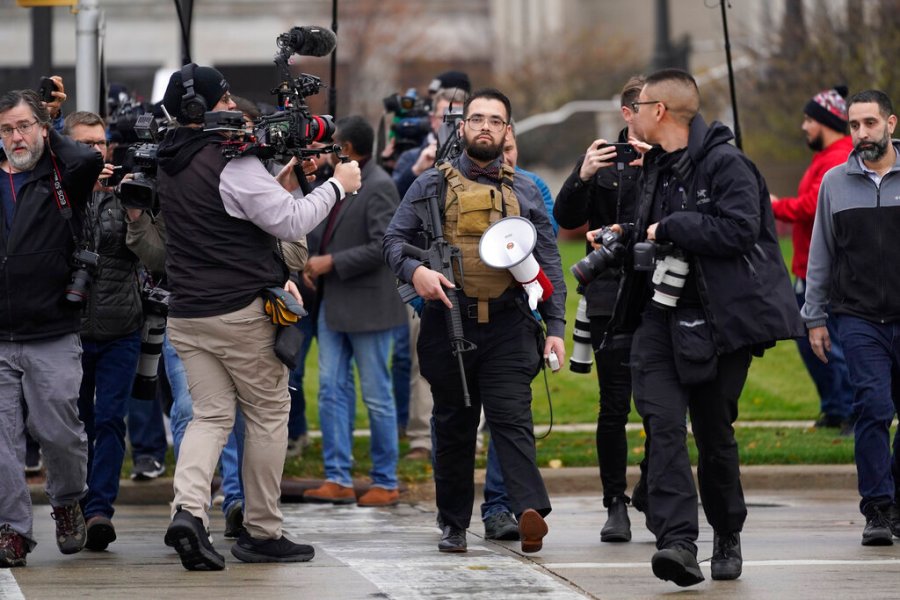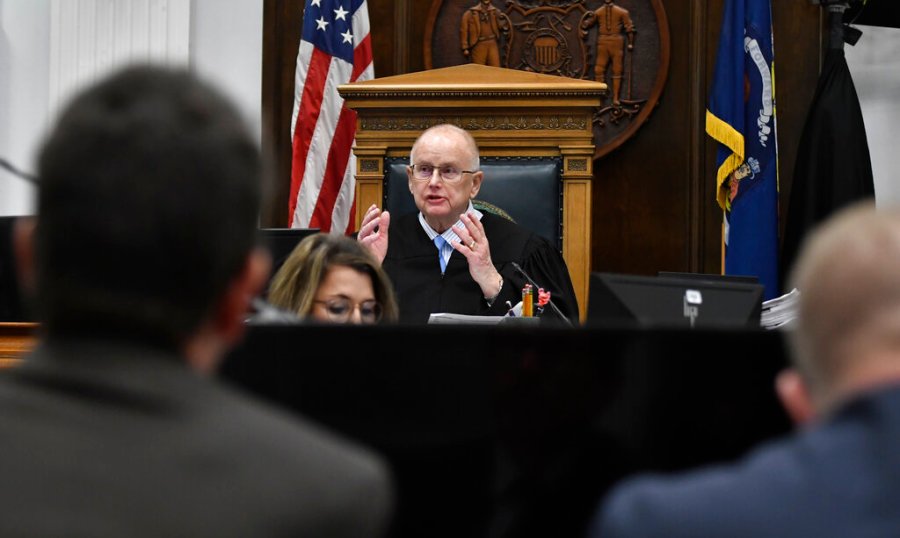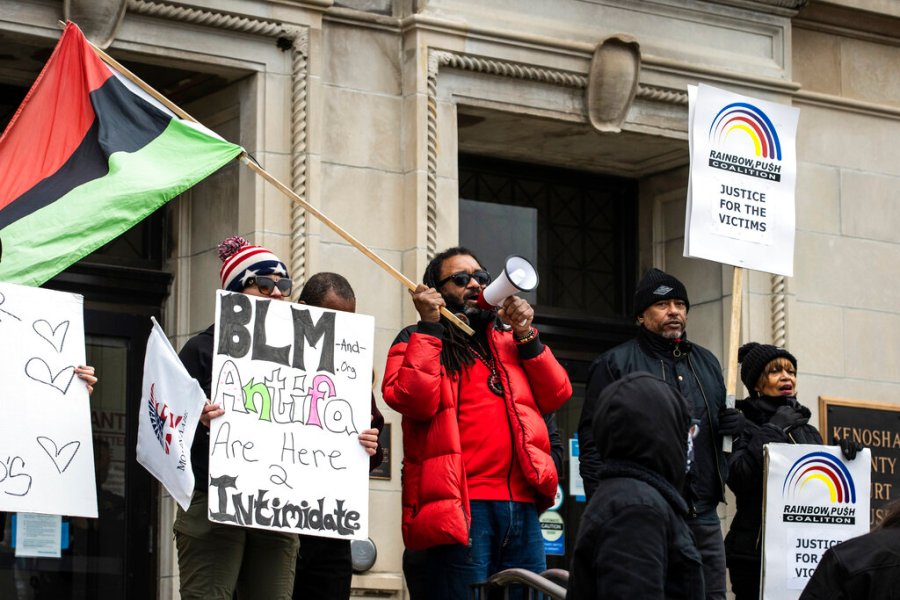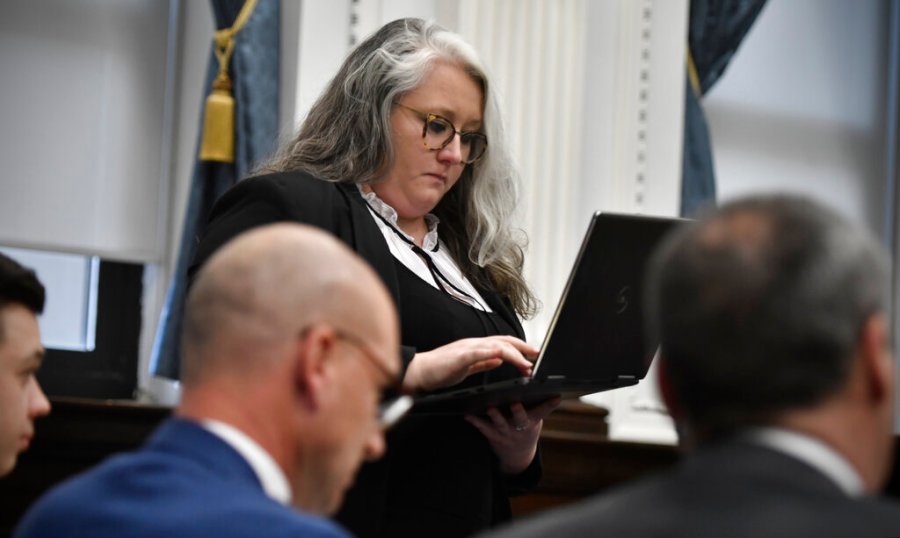Rittenhouse jury ends day three without a verdict
KENOSHA, Wis. (NewsNation Now) — The jury in Kyle Rittenhouse’s trial will need a fourth day to deliberate.
In a trial full of technical glitches and two motions for a mistrial, Thursday’s curveball lead to NBC News being banned from the trial after a freelance worker of theirs was accused of following the jury bus Wednesday night.
“Last night a person who is alleging to be affiliated with a national media outlet was briefly taken into custody and issued several traffic related citations. Police suspect this person was trying to photograph jurors. This incident is being investigated much further,” Kenosha police said on Twitter Thursday. “There was no breach of security regarding the jury, nor were there any photographs obtained. This investigation remains active and open, no further information.”
Judge Bruce Schroeder said authorities received a report that an MSNBC producer, James Morrison, was instructed by his boss to follow the jury bus. The producer in question ran a red light and then was questioned by police.
Schroeder said NBC and MSNBC will no longer be allowed in the trial now, saying following the jury bus is a serious matter and is being referred to authorities for further action. He said the incident is under investigation.
NBC News said in a statement that the man was a freelancer who received a citation for a traffic violation that took place near the jury vehicle, and he “never photographed or intended to photograph them.”
NewsNation will provide updates on this ongoing situation.
Schroeder did not immediately rule on the defense’s Wednesday request for a mistrial, which stemmed from the defense team’s assertion that it received an inferior copy of a potentially critical video from prosecutors. It was the second mistrial motion from the defense in a week.
At issue Wednesday was a piece of drone video that prosecutors showed the jury during closing arguments in an attempt to undermine Rittenhouse’s self-defense claim and portray him as the instigator of the bloodshed in Kenosha in the summer of 2020. Prosecutors said the footage showed him pointing his rifle at protesters before the shooting erupted.
Rittenhouse attorney Corey Chirafisi said the defense initially received a smaller compressed version of the video and didn’t get the higher-quality larger one used by the prosecution until the evidence portion of the case was over.
He said that the defense would have approached things differently if it had received the better footage earlier and that it is now asking for “a level, fair playing field.”
Chirafisi said the mistrial request would be made “without prejudice,” meaning prosecutors could still retry Rittenhouse.
Criminal defense attorney Michael Hart weighed in on the mistrial motions on “Morning in America.” You can watch the full interview with Adrienne Bankert in the player below.
Last week, the defense asked for a mistrial with prejudice, meaning Rittenhouse could not be put on trial again. That request was prompted by what the defense said were improper questions asked by prosecutor Thomas Binger during his cross-examination of Rittenhouse.
Rittenhouse, 18, is on trial on homicide and attempted homicide charges for killing two men and wounding a third with an AR-style semi-automatic rifle during a tumultuous night of protests over the police shooting of Jacob Blake, a Black man, by a white police officer. Rittenhouse, a then-17-year-old former police youth cadet, said he went to Kenosha to protect property from rioters.
He shot and killed Joseph Rosenbaum, 36, and Anthony Huber, 26, and wounded Gaige Grosskreutz, now 28. Rittenhouse is white, as were those he shot. The case has become a flashpoint in the debate over guns, racial injustice, vigilantism and self-defense in the U.S.
Rittenhouse could get life in prison if convicted of the most serious charge against him.
The dispute over the video erupted after the jurors asked to re-watch footage on the second day of their deliberations.
Defense attorneys said they would object to the jury viewing the drone video. The same footage prompted a heated dispute earlier in the trial over technical questions of whether a still image taken from the video was distorted when it was enlarged.
The prosecution contends the video proves Rittenhouse lied on the stand when he said he didn’t point his rifle at protesters. But the key moment in the video is hard to decipher because of how far away the drone was and how small a figure Rittenhouse is in the frame.
A smaller file size or lower-resolution video file is fuzzier and grainier, particularly if played on a larger screen, said Dennis Keeling, an adjunct professor in the cinema and television arts department at Columbia College Chicago. That’s why people working with video footage are careful to check the file size, length and other details after making a copy to ensure the new version is what they wanted, he added.
Prosecutors told the judge Wednesday that the jury saw the highest-quality version during the trial and that it was not the state’s fault that the file size got smaller when received by the defense.
“We’re focusing too heavily on a technological glitch,” prosecutor James Kraus said.
The judge said he had “qualms” about admitting the video during the trial, but because it had already been shown in court, he would allow the jury to re-watch it during deliberations.
But if it turns out the video should not have been admitted into evidence, “it’s going to be ugly,” Schroeder warned.
He said the mistrial request will have to be addressed if there is a guilty verdict.
If Rittenhouse is acquitted, the issue will be moot. But if he is found guilty, a mistrial ruling would essentially void the verdict.
Julius Kim, a Milwaukee-based defense attorney who has been watching the case, said a mistrial could be declared even if the judge finds it was an honest mistake or a technical problem.
But to win a mistrial, the defense will have to meet a high bar and explain to the judge why what happened actually hurt Rittenhouse, said Ion Meyn, an assistant professor at the University of Wisconsin Law School.
“You can’t just say, ‘The state gave me a lower-quality video and therefore I get a mistrial,’” Meyn said. “That’s a losing argument for sure.”
Earlier in the day, the judge criticized news coverage of the case and second-guessing from legal experts in the media, saying he would “think long and hard” about allowing televised trials in the future.
He took exception to news stories about his decisions not to allow the men Rittenhouse shot to be called “victims” and to let Rittenhouse draw the lots that determined which jurors were alternates. The judge also complained about criticism that he had yet to rule on the earlier mistrial request.
Schroeder said he hadn’t had a chance to read the motion because he had just received it and wanted to give the state a chance to weigh in.
“It’s just a shame that irresponsible statements are being made,” the judge said of comments in a Milwaukee Journal Sentinel story from law school professors.










